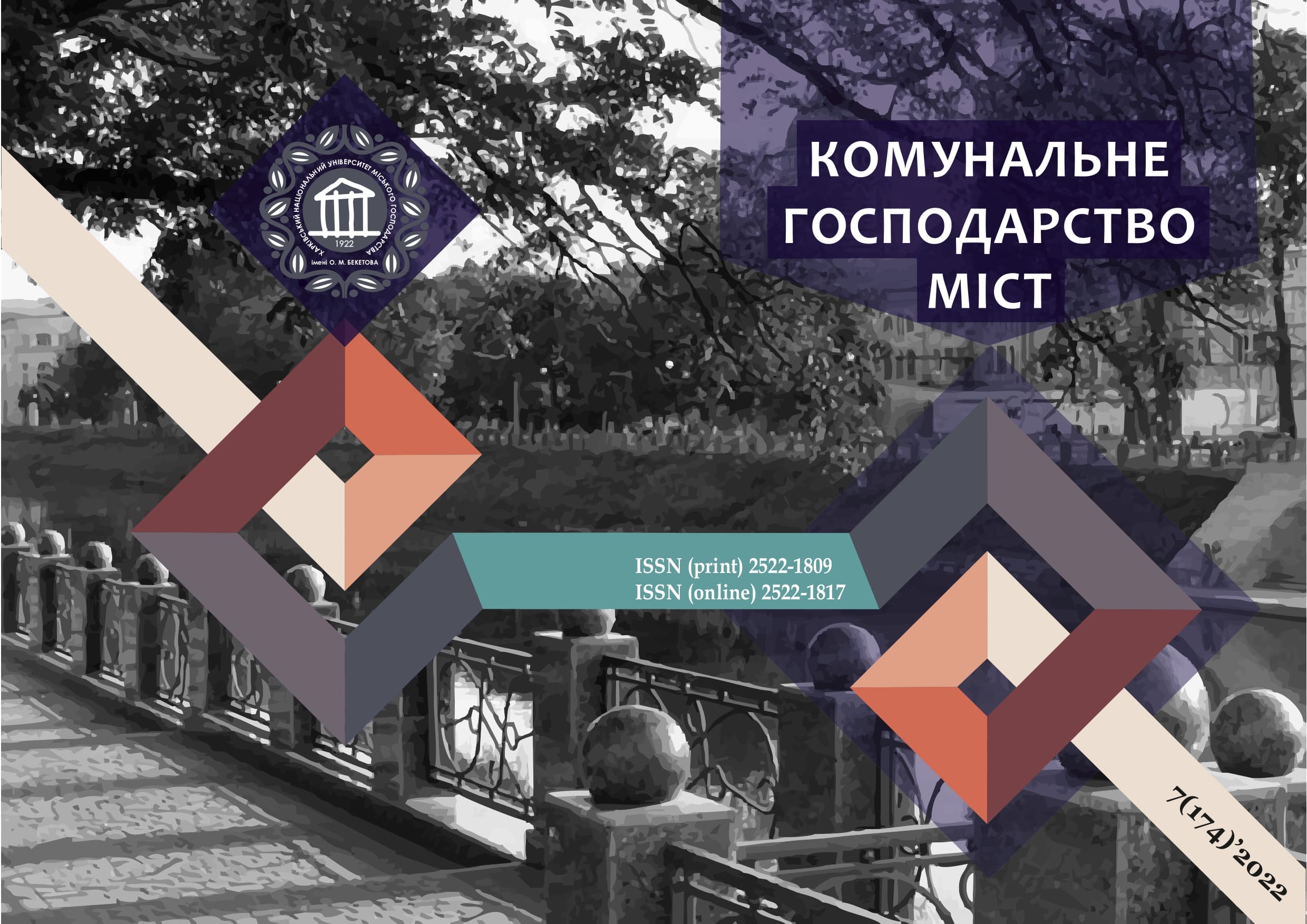ДОСЛІДЖЕННЯ ФАКТОРІВ, ЩО ВПЛИВАЮТЬ НА ЕФЕКТИВНІСТЬ ОСВІТНЬОЇ ДІЯЛЬНОСТІ ПІДГОТОВКИ СПЕЦІАЛІСТІВ З ЕКОНОМІКИ НА ОСНОВІ ЗАСТОСУВАННЯ ІНТЕРНЕТ-ПЛАТФОРМ
DOI:
https://doi.org/10.33042/2522-1809-2022-7-174-3-8Ключові слова:
освіта, Інтернет-платформа, Інтернет-технології, стейкхолдерні відносиниАнотація
Сучасні надзвичайні умови, що характеризуються накопиченням негативного впливу зовнішніх і внутрішніх чинників, потребують переосмислення підходів до організації освітньої діяльності. Спостерігається зростання значення дистанційної освіти у світі із застосуванням сучасних інформаційних технологій. Дослідження факторів, що впливають на ефективність освітньої діяльності підготовки спеціалістів з економіки на основі застосування Інтернет-платформ є важливим питанням.
Посилання
Konevshchynska O.E. (2014) Modern means of Internet access and educational platforms in e-learning. Information technologies and learning tools. 40, 33–41.
Belova A.V. (2012) Instruments of scientific and technical cooperation between Russia and the European Union in the innovation sphere. Baltic region. 4, 137–149.
Information document on the implementation of the EU Strategy. URL: https://www.minregion.gov.ua/wp-content/uploads/2017/04/Dovidka.pdf.
Ukraine 2030E – a country with a developed digital economy / V. Fishchuk et al. Ukrainian Institute of the Future: URL: https://strategy.uifuture.org/kraina-z-foroventoyu-cifrovoyu-ekonomikoyu.html.
Weber L. (2010) Effective marketing on the Internet. Social networks, blogs, Twitter and other online promotion tools. URL: http://www.management.com.ua/marketing/mark201.html.
Nielsen R.K. Power of Internet platforms. URL: https://ua.ejo-online.eu/4111/tsyfrovi-media/vlada-internet-platform.
Grigoriev N.Yu., Sharoiko F.V. (2019) Management of communication platforms as a way to promote the brand. Economics: yesterday, today, tomorrow. 6A, 202–211. URL: http://publishing-vak.ru/file/archive-economy-2019-6/24-grigorev-sharoiko.pdf.
Maltseva O.P. (2012) Communication Internet platforms as a marketing tool. Almanac of theoretical and applied research in advertising. 2(4), 32–41. URL: https://cyberleninka.ru/article/n/kommunikatsionnye-internet-platformy-kak-instrument-marketinga/viewer.
Sichkarenko K.O. The development of digital educational platforms and the spread of digital competences in education. Efficient economy. URL: http://www.economy.nayka.com.ua/pdf/12_2018/117.pdf.
Kaletnik H.M., Gunko I.V. (2017) Innovative platforms for the organization of scientific and discussion youth platforms in the context of the European integration development of the agrarian economy. Economy. Finances. Management: topical issues of science and practice. 4, 7–18.
Kalinina L.M. (2017) Informatization of education and the emergence of a new educational environment as the basis of a new Ukrainian school. Computer in school and family. 4, 13–17.
Konevshchynska O.E. (2014) Modern means of Internet access and educational platforms in e-learning. Information technologies and learning tools. 44, 33–41.
Konevshchynska O.E. (2015) Network technologies as a component of the information and educational environment of an educational institution. Information and communication technologies in modern education: experience, problems, prospects. 4, 9–11.
Kuzminska O.G., Nanaeva T.V. (2016) Educational policy and information technologies: how to achieve a systemic effect? Information technologies and teaching aids. 52, 121–132.
Lytvyn A.V. (2015) Development of e-learning by Microsoft: from local technologies to cloud services. Latest computer technologies. 13, 264–268.
Lyubarets V.M. (2016) Creation of the electronic educational platform ACCENT - the way to quality education. Higher education of Ukraine. 3, 58–63.
Yu.V. Opanasyuk (2016) Distance learning as a consequence of the evolution of the traditional education system. Higher education of Ukraine. 11, 49–53.
Rzhevska N.I. (2016) Formation of legal competence based on online interaction of participants in the educational process. Continuous professional education: theory and practice. 3–4, 148–153.
Sharova T.M., Sharov S. V. (2018) Mass open online courses as an opportunity to increase the competitiveness of a specialist. Young scientist. 9, 137–140.
Remote platforms for learning, self-development and receiving help and verified information. URL: https://mon.gov.ua/ua/news/distancejni-platformi-dlya-navchannya-samorozvitku-ta-otrimannya-dopomogi-j-perevirenoyi-informaciyi.
Platforms for improving skills and self-development. URL: https://mon.gov.ua/ua/news/platformi-dlya-vdoskonalennya-navichok-i-samorozvitku.
Europe 2020. A strategy for smart, sustainable and inclusive growth. Brussels, 3.3. 2010. COM (2010) 2020. https://eur-lex.europa.eu/resource.html?uri=cellar:a3c806a6-9ab3-11ea-9d2d-01aa75ed71a1.0001.02/DOC_1&format=PDF.
Gao X. Distance (2020) learning in primary schools in the environment of multimedia computer resources. Journal of Physics: Conference Series, 1–7.
Morze N., Bazeliuk O., Vorotnikova I., Dementiievska N., Zakha, O., Nanaieva T., Pasichnyk O., Chernikova L. (2019) Description of digital competence of a pedagogical worker. Open educational e-environment today -th university. 1, 53.
Bykov V.Yu. (2008) Models of organizational systems of open education. 684.
Baryshnikova V.Ya., Zhikhareva V.V., Petrova A.V. (2020) Modern problems of distance education at school. Distance education in Ukraine: Innovative, regulatory and pedagogical aspects. I All-Ukrainian Scientific and Practical Conference, 38–40.
I.M. Dunina (2010) Distance learning platforms in France. Horli State Pedagogical Institute of Foreign Languages, 1–8.
Konevshchynska O. (2015) Modern means of Internet access and educational platforms in e-learning. Information technologies and means of education. 6, 33–40.
Concept of distance education development in Ukraine (approved by the Ministry of Education and Science of Ukraine on 12.20.2000).
##submission.downloads##
Опубліковано
Як цитувати
Номер
Розділ
Ліцензія
Автори, які публікуються у цьому збірнику, погоджуються з наступними умовами:
- Автори залишають за собою право на авторство своєї роботи та передають журналу право першої публікації цієї роботи на умовах ліцензії CC BY-NC-ND 4.0 (із Зазначенням Авторства – Некомерційна – Без Похідних 4.0 Міжнародна), котра дозволяє іншим особам вільно розповсюджувати опубліковану роботу з обов'язковим посиланням на авторів оригінальної роботи та першу публікацію роботи у цьому журналі.
- Автори мають право укладати самостійні додаткові угоди щодо неексклюзивного розповсюдження роботи у тому вигляді, в якому вона була опублікована цим журналом (наприклад, розміщувати роботу в електронному сховищі установи або публікувати у складі монографії), за умови збереження посилання на першу публікацію роботи у цьому журналі.
- Політика журналу дозволяє і заохочує розміщення авторами в мережі Інтернет (наприклад, у сховищах установ або на особистих веб-сайтах) рукопису роботи, як до подання цього рукопису до редакції, так і під час його редакційного опрацювання, оскільки це сприяє виникненню продуктивної наукової дискусії та позитивно позначається на оперативності та динаміці цитування опублікованої роботи (див. The Effect of Open Access).

